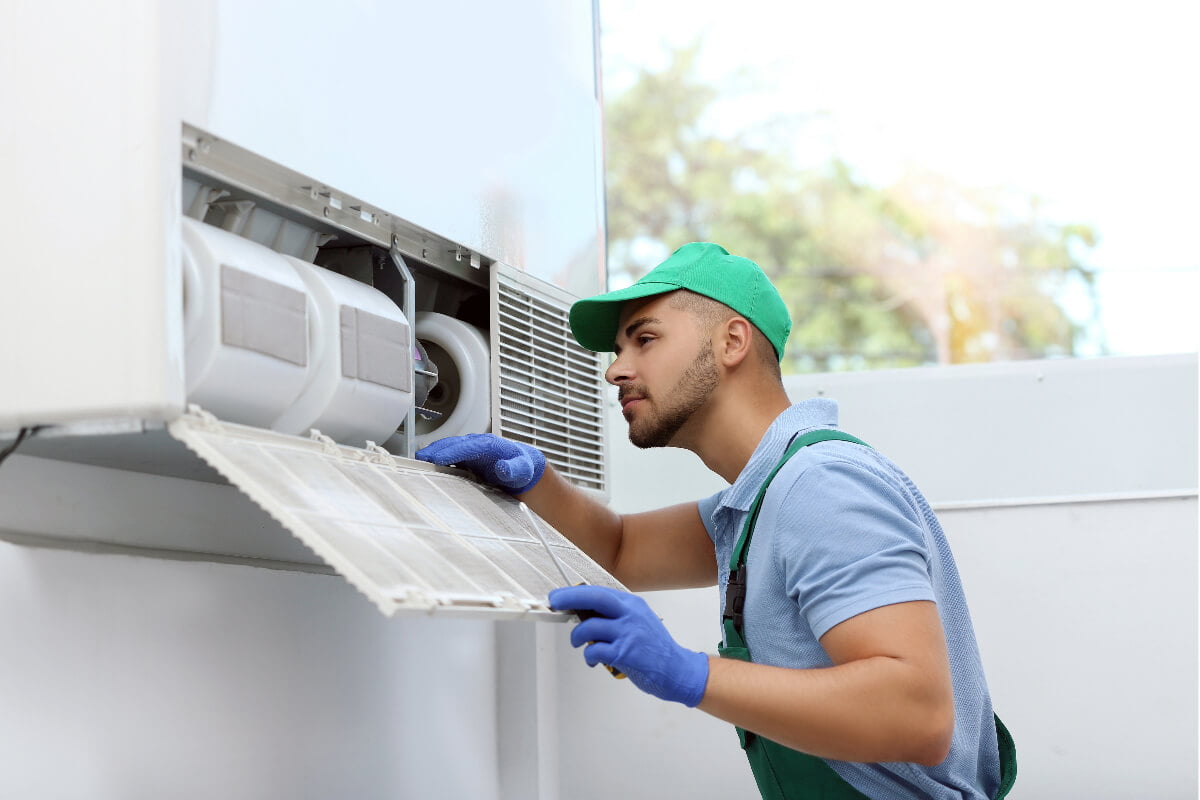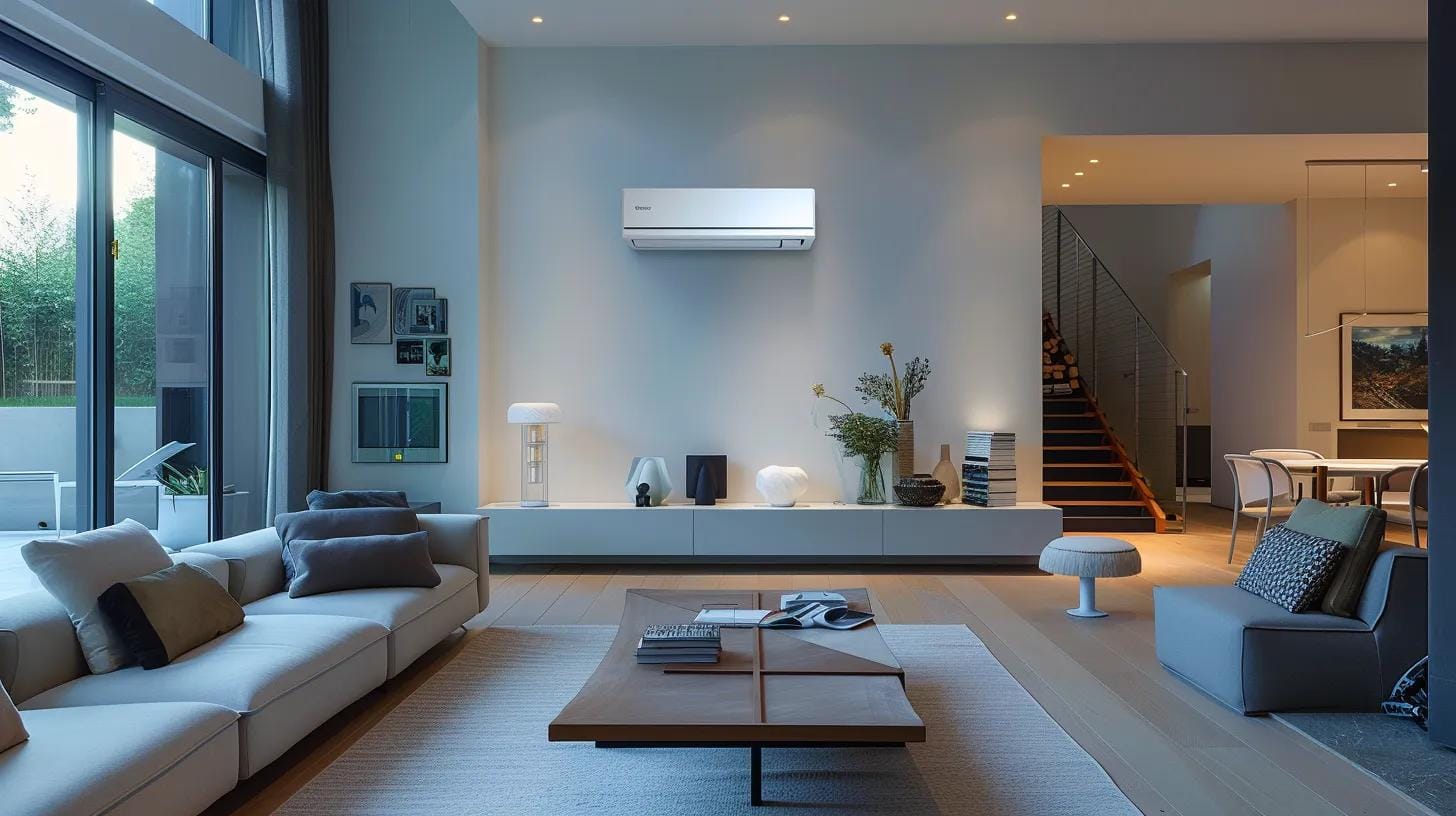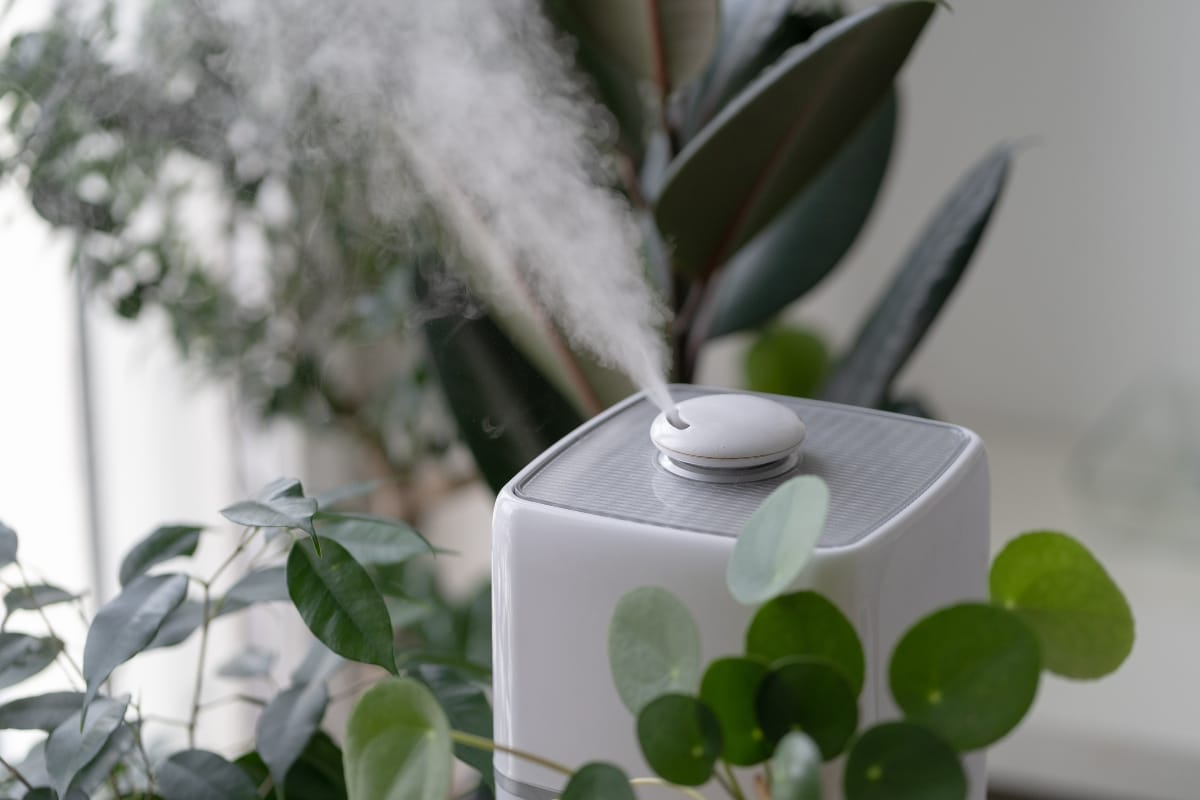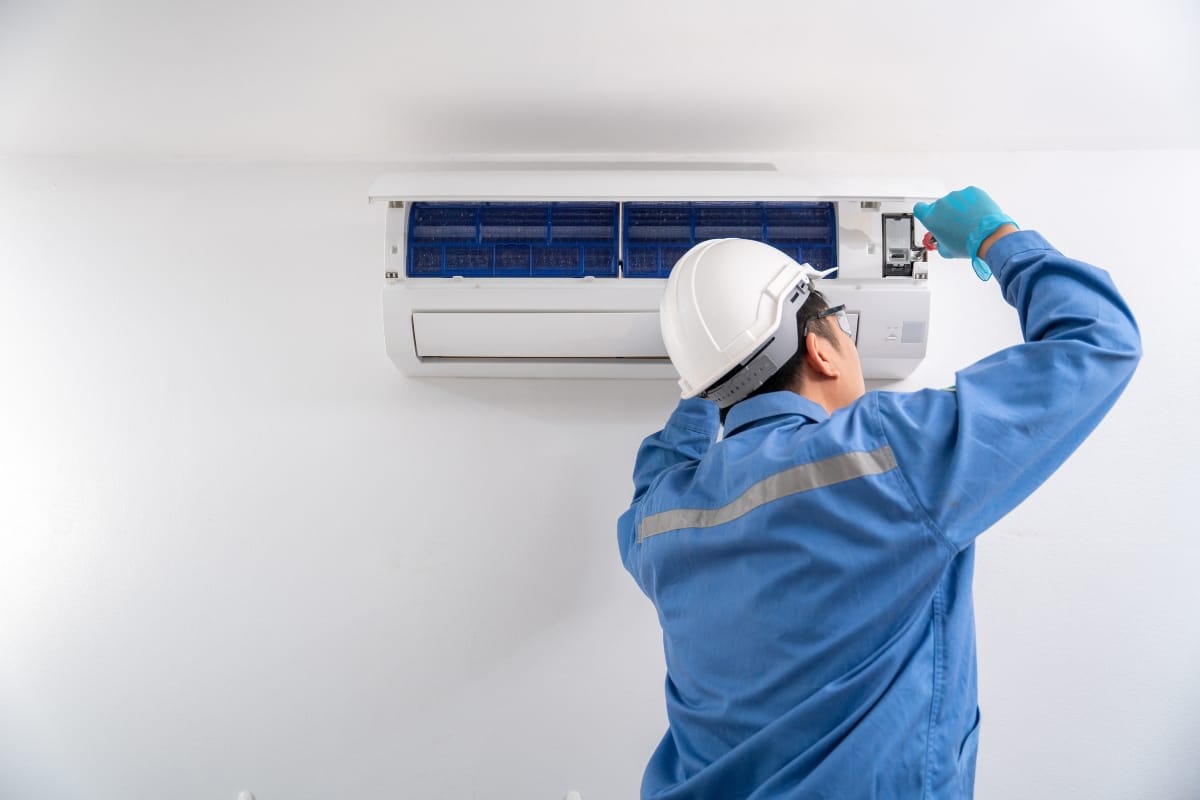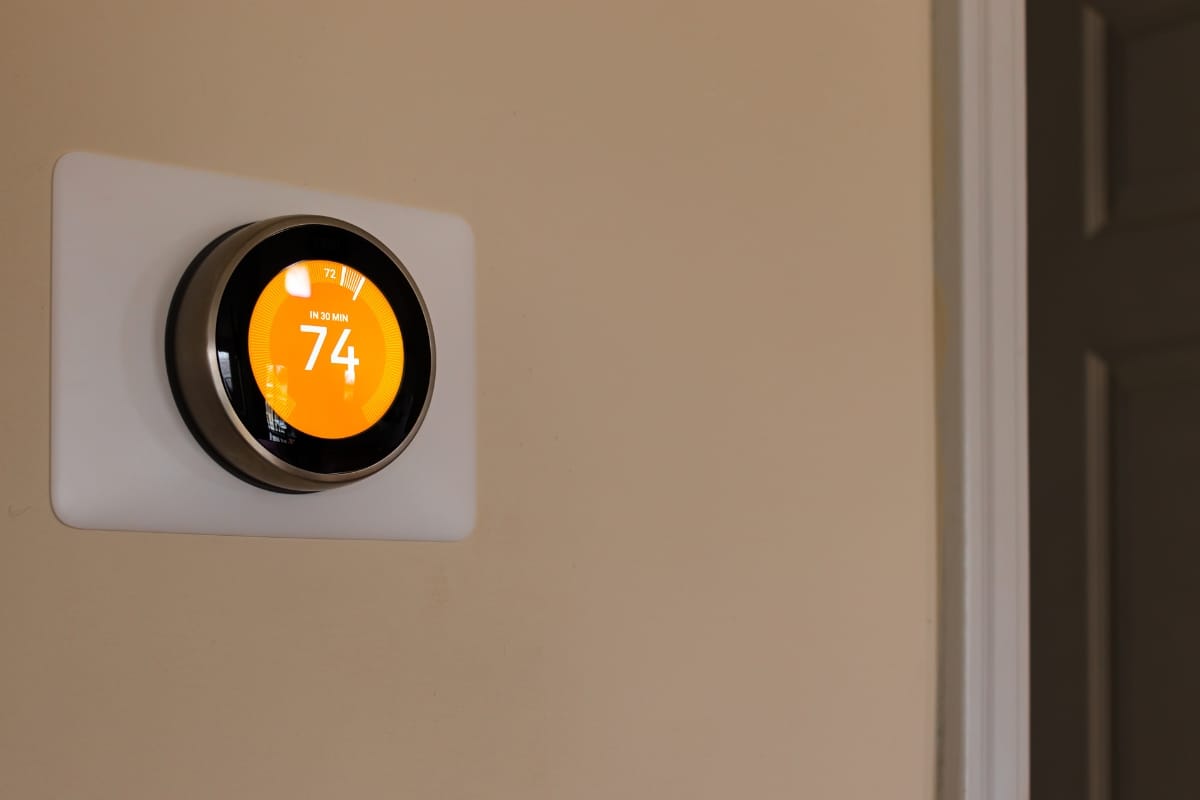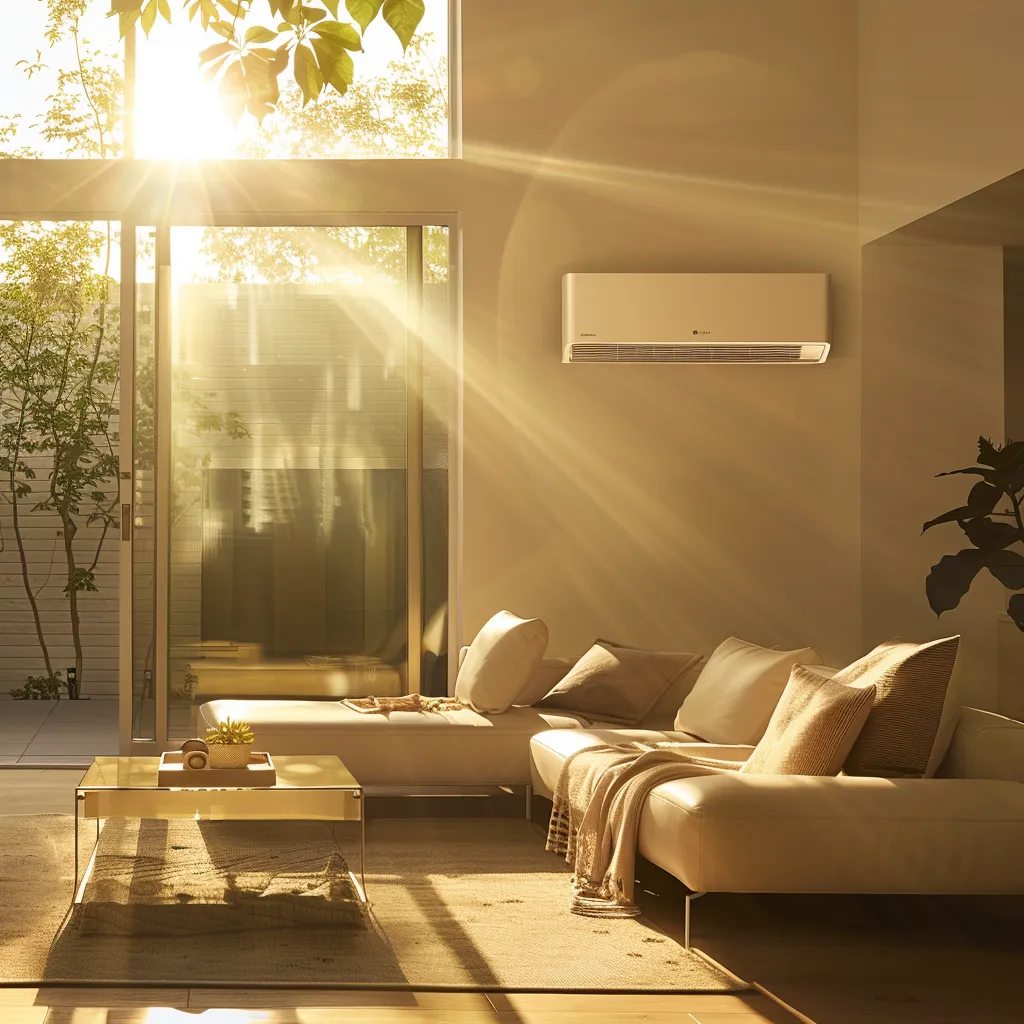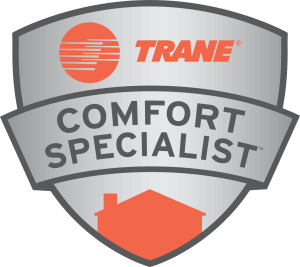Are you tired of sweltering in the summer heat and shivering during the winter chill? Have you ever wondered how buildings can maintain a comfortable and consistent temperature year-round?
Look no further than an HVAC system, your ultimate ally in creating the perfect indoor climate. But what is an HVAC system and how does it work its magic?
Let’s dive right in and uncover the secrets behind this complex yet essential system!
Discover The Wonders Of HVAC Systems!
What Is An HVAC System: Understanding The Components
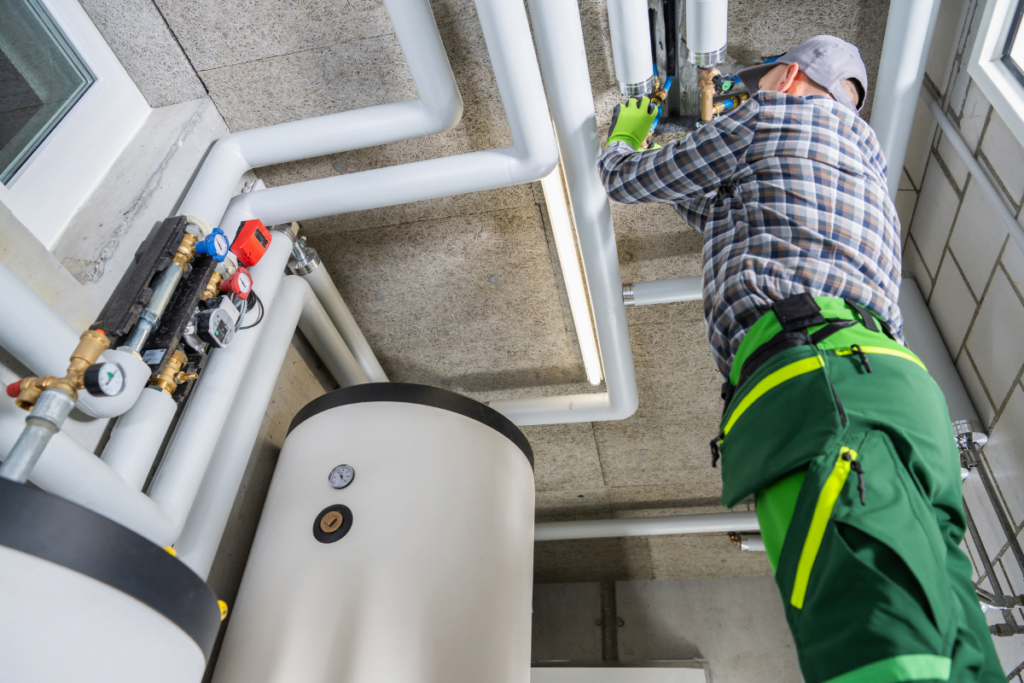
An HVAC system, which stands for Heating, Ventilation, and Air Conditioning, is an essential component of any modern building. It helps regulate the indoor climate and ensures the comfort and well-being of the occupants. Understanding what is an HVAC system through its different components can help you appreciate its functionality and make informed decisions regarding maintenance and upgrades. Here are the key components of an HVAC system:
- Furnace or Heat Pump: The furnace or heat pump is responsible for heating the air in the system. In colder months, it provides warmth by burning fuel or using electricity to generate heat. A heat pump, on the other hand, transfers heat from the outside air to warm the indoor space. Both options are efficient and effective in maintaining a comfortable temperature.
- Air Conditioner or Cooling Unit: The air conditioner or cooling unit is responsible for cooling the air in the system. It removes heat and humidity from the indoor air, ensuring a pleasant and refreshing atmosphere. The cooling unit operates by compressing and expanding a refrigerant, which absorbs heat from the indoor air and releases it outside.
- Ductwork: Ductwork is an extensive network of pipes or channels that distributes conditioned air throughout the building. It ensures proper airflow and temperature regulation in different areas. Well-designed ductwork should be properly insulated and free from leaks or obstructions to maximize the system’s efficiency.
- Thermostat: The thermostat serves as the control center of the HVAC system. It allows you to set and adjust the desired temperature in your space. Modern thermostats often come with advanced features like programmable schedules, Wi-Fi connectivity, and energy-saving settings. These features help optimize energy consumption and enhance user convenience.
- Air Filters: Air filters play a crucial role in maintaining indoor air quality. They trap dust, allergens, and other pollutants, preventing them from circulating through the HVAC system and into your living space. Regularly changing or cleaning the filters is essential to ensure clean and healthy air.
- Vents and Registers: Vents and registers are the openings in the walls, floors, or ceilings where conditioned air is delivered into the rooms. They allow air to flow in and out of the HVAC system, ensuring proper ventilation. By adjusting the vents and registers, you can control the airflow and direct it to specific areas as needed.
- Refrigerant Lines: Refrigerant lines are the pipes that carry the refrigerant between the indoor and outdoor units of the HVAC system. They are responsible for transferring heat and enabling the cooling process. Proper insulation and maintenance of these lines are essential to prevent energy loss and ensure efficient operation.
Understanding what is an HVAC system gives you a better grasp of how it works and how each part contributes to indoor comfort. Regular maintenance and professional servicing of these components are crucial for optimal performance and longevity. By taking care of your HVAC system, you can enjoy a comfortable living space with clean air and efficient temperature control.
The Role Of Heating In An HVAC System
Heating is an essential component of an HVAC system. It plays a crucial role in maintaining a comfortable indoor environment, especially during cold weather conditions. Knowing its role is also important in understanding what is an HVAC system.
- Efficient Heating: One of the primary functions of an HVAC system is to provide warmth and regulate the temperature inside a building. The heating component of the system ensures that the indoor temperature remains at a comfortable level, regardless of the weather outside.
- Heating Methods: There are various heating methods used in HVAC systems, including forced air systems, radiant heating, and heat pumps. Each method operates differently but ultimately aims to provide adequate heating to meet the occupants’ needs.
- Forced Air Systems: Forced air heating systems are among the most common in HVAC systems. They work by heating the air and then distributing it throughout the building using ductwork. These systems can utilize different types of fuel sources, such as natural gas, oil, or electricity, to generate heat.
- Radiant Heating: Radiant heating systems are becoming increasingly popular due to their energy efficiency and comfortable heat distribution. These systems use heating panels or coils installed beneath the floor, in the walls, or within the ceiling to radiate heat directly to the objects and people in the room.
- Heat Pumps: Heat pumps are versatile heating solutions that can also provide cooling during warmer months. They work by transferring heat from one location to another, either extracting heat from the outside air or the ground and distributing it indoors. Heat pumps are highly efficient and can save energy compared to other heating methods.
- Zoning and Controls: Heating systems in an HVAC setup often incorporate zoning and control features. Zoning allows different areas of a building to have individual temperature control, ensuring optimal comfort and energy efficiency. Controls, such as thermostats and timers, enable users to set desired temperatures and schedule heating operations based on their requirements.
Whether it’s through forced air systems, radiant heating, or heat pumps, the heating component plays a significant role in providing warmth efficiently. Additionally, incorporating zoning and controls enhances the system’s performance and allows personalized temperature settings.
The Role Of Cooling In An HVAC System
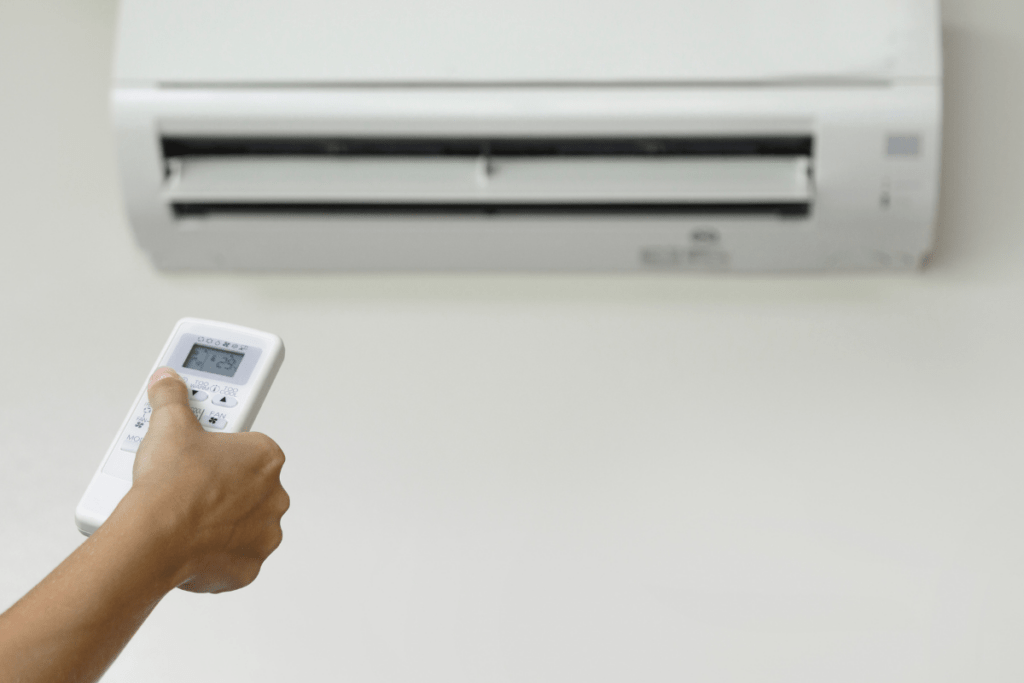
In an HVAC system, cooling plays a crucial role in maintaining a comfortable indoor environment. Here are some key points to understand what is an HVAC system through the significance of cooling:
- Temperature Regulation: The primary purpose of cooling in an HVAC system is to regulate the temperature. It ensures that the indoor space remains cool and comfortable, especially during hot summer months. By removing heat and lowering the temperature, cooling helps create a pleasant living or working environment.
- Energy Efficiency: Cooling systems are designed to be energy-efficient, ensuring optimal performance while consuming less energy. This is achieved through various mechanisms such as efficient compressors, advanced refrigerants, and improved insulation. By using less energy, cooling in an HVAC system helps reduce utility bills and minimize environmental impact.
- Ventilation Enhancement: Cooling is closely linked to ventilation in an HVAC system. Proper ventilation ensures the circulation of fresh air and the removal of stale air, odors, and pollutants from the indoor space. Cooling systems play a crucial role in enhancing ventilation by distributing conditioned air evenly throughout the area.
- Humidity Control: Another important role of cooling in an HVAC system is humidity control. Cooling systems help remove excess moisture from the air, preventing the growth of mold and mildew. By maintaining optimal humidity levels, cooling ensures a comfortable and healthy indoor environment.
- Air Quality Improvement: Cooling systems often incorporate air filters that help improve indoor air quality. These filters trap dust, pollen, allergens, and other airborne particles, preventing them from circulating in the indoor space. By removing pollutants, cooling in an HVAC system promotes a cleaner and healthier atmosphere.
- System Performance: Cooling is an integral part of the overall HVAC system performance. It works in conjunction with heating and ventilation to provide a well-balanced and efficient system. Proper cooling ensures that the system operates smoothly, delivering the desired level of comfort and air quality.
- Zoning Capabilities: With advancements in technology, modern cooling systems offer zoning capabilities. This allows different areas of a building to be cooled separately, based on individual needs and preferences. Zoning helps optimize energy usage and provides personalized comfort, making cooling in an HVAC system more versatile.
Knowing the role of cooling is vital in understanding what is an HVAC system. It is an essential component that ensures a comfortable and healthy indoor environment, while also promoting energy efficiency and cost savings.
The Importance Of Efficient Ventilation
Efficient ventilation is crucial for maintaining a comfortable and healthy indoor environment. Whether it’s in residential or commercial spaces, having proper ventilation systems in place can make a significant difference in terms of air quality and overall well-being. So, as you try to learn what is an HVAC system, here are some key reasons why efficient ventilation is important:
- Improved Air Quality: Efficient ventilation helps to remove stale air, odors, and pollutants from indoor spaces. It allows for the exchange of fresh outdoor air, reducing the buildup of allergens, mold, and other harmful substances. This is especially important for individuals with respiratory conditions or allergies.
- Temperature Regulation: Ventilation systems, particularly those integrated into HVAC (Heating, Ventilation, and Air Conditioning) systems, play a vital role in regulating indoor temperature. By circulating air and removing excess heat, ventilation helps maintain a comfortable and consistent temperature throughout a building. This can lead to increased energy efficiency and cost savings.
- Moisture Control: Proper ventilation helps to control humidity levels, preventing excessive moisture buildup. Excess moisture can lead to the growth of mold and mildew, which can cause health issues and damage to the structure of the building. Efficient ventilation systems help to remove excess moisture, reducing the risk of such problems.
- Odor Elimination: Good ventilation effectively removes unpleasant odors from indoor spaces. Whether it’s cooking smells, pet odors, or lingering cigarette smoke, ventilation systems help to circulate fresh air and eliminate unwanted odors, creating a more pleasant and inviting environment.
- Health Benefits: Efficient ventilation can have a positive impact on our overall health and well-being. By removing pollutants and ensuring a continuous supply of fresh air, ventilation systems can help reduce the risk of respiratory problems, allergies, and other health issues associated with poor indoor air quality.
Efficient ventilation is of utmost importance for maintaining a comfortable, healthy, and pleasant indoor environment. Investing in high-quality ventilation systems, such as those integrated into HVAC systems, can have long-term benefits. So, whether you’re building a new property or looking to upgrade your existing ventilation system, prioritize efficiency and reap the rewards of a well-ventilated space.
HVAC Systems: The Ultimate Key To Year-Round Comfort!

Ready to experience the epitome of comfort? Contact Cool Pro today to discover what is an HVAC system and unlock a world of exceptional HVAC services.
At Cool Pro, we pride ourselves on being industry experts, dedicated to providing top-notch heating, ventilation, and air conditioning solutions. Our team of highly skilled professionals is here to guide you through the realm of HVAC systems, ensuring you have all the knowledge you need to make informed decisions.
Don’t let uncertainty hold you back from enjoying the perfect indoor climate. Whether you’re curious about HVAC basics and in the process of learning what is an HVAC system or need assistance with installation, repairs, or maintenance, Cool Pro has you covered. Our comprehensive range of services caters to all your HVAC needs.
By choosing Cool Pro, you’re opting for unparalleled expertise and customer satisfaction. We strive to go above and beyond to ensure your comfort is optimized, making your living or working space truly enjoyable.
Ready to embark on a journey of enhanced comfort? Contact Cool Pro now! Our friendly representatives are eagerly waiting to assist you with any questions you may have. Take the first step towards a perfectly conditioned environment—reach out to Cool Pro today and experience HVAC excellence firsthand.

